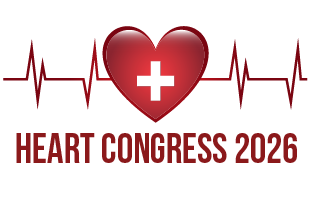3rd Global Summit on
Heart and Cardiovascular Care
November 26-27, 2026 | Dubai, UAE

MD Hotel – By Gewan
Address: Al Barsha, Al Barsha 1, Dubai, United Arab Emirates
Address: Al Barsha, Al Barsha 1, Dubai, United Arab Emirates
Myocardial infarction
Myocardial infarction
Myocardial infarction, also known as heart attack, is a life-threatening condition that occurs when the blood supply to the heart muscle is interrupted. This can damage the heart tissue and cause serious complications. The most common cause of myocardial infarction is a blockage of a coronary artery by a blood clot, which is often the result of a rupture of a fatty plaque. The main symptom of myocardial infarction is chest pain or discomfort, which may radiate to the arm, neck or back. Other symptoms may include shortness of breath, sweating, nausea, dizziness, or fainting.
Related Sessions
Tags
- Myocardial Infarction Meetings
- Myocardial Infarction Hybrid Event
- Myocardial Infarction Event in UK
- Myocardial Infarction Event in London
- Myocardial Infarction Summit
- Myocardial Infarction Summit
- Myocardial Infarction Webinar
- Myocardial Infarction Webinar
- Upcoming Myocardial Infarction Event
- Myocardial Infarction Conferences
- Myocardial Infarction Conferences
- Myocardial Infarction Events
- Myocardial Infarction Events
- Myocardial Infarction Meetings
- Myocardial Infarction Hybrid Event
- Myocardial Infarction Event in UK
- Myocardial Infarction Event in London
- Myocardial Infarction Summit
- Myocardial Infarction Summit
- Myocardial Infarction Webinar
- Myocardial Infarction Webinar
- Upcoming Myocardial Infarction Event
